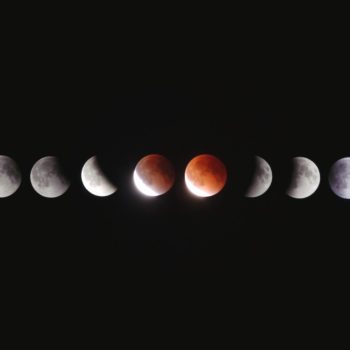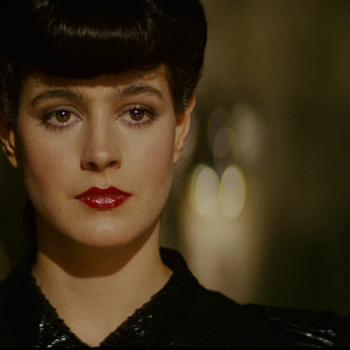
Witchcraft and Matrix Glitches: A Conversation on Speculative Poetry, Part 2
- Posted by Augur Blog
- On May 15, 2019
- 0 Comments
By Terese Mason Pierre
In Part 1 of this series, the poetry editors of Strange Horizons (Romie Stott), FIYAH (Brandon O’Brien) and I talked about what we thought made poems speculative. The conversation shed light on our personal and professional experiences with this amazing kind of literature.
Here, we’ll move into what we value about speculative poetry.
What makes a speculative poem exciting, interesting and valuable?
Romie:
At base, I like reading speculative poems. Even a poem which is not to my taste will be fairly short, generally, and is (to some extent) either playful or personally revealing. It’s not going to frustrate me the way a short story can.
I’m not going to get to the end and go, “I wasted my time and it ended like this?!!!!” I feel friendly toward speculative poems. I like that somebody said, “You know what? I’m going to write a speculative poem today and send it to somebody.”
When it comes to what I select for the magazine, it’s like assembling a mix tape.
I’m thinking about what I like, about what I know my audience likes, and about what I want to push my audience toward liking that they may not know they like yet. I’m thinking about the mood I’m picking up on from the country around me (United States) and what’s resonant. This is something I do partly consciously and partly unconsciously. I’m also looking for a degree of novelty to balance that.
So, for example, if I were to get 20 different poem submissions about migration in a month, I would know that’s something that’s preoccupying the community and needs to be heard, but I also wouldn’t run 20 poems about migration. I’d pick my favourite two and space them out.
It’s hard to describe what I’ll find exciting, because part of what excites me is getting something I didn’t expect. I respond well to underdogs, imaginative imagery, surprising word choice, humour, and humanity.
I like poems that allow me to feel two opposite things at the same time: ambition combined with breeziness; anger that comes from love; grief that tells me a joke.
Terese:
A speculative poem is exciting and interesting if it’s doing something I haven’t seen before. That’s a tall order for any writer, but it doesn’t have to be something grand.
The poem can be unique in the formatting, link two or more concepts together in new ways, or comment on something that transcends genre or form—there are so many strategies. What’s also helpful is if I can see that the writer believes in and is excited about what they’ve written, that they were careful in selecting their pieces and submitting them to the magazine.
What makes a speculative poem—or any poem, really—valuable is when it has the power to capture readers. When the poem has the power to persist in readers’ minds long after their eyes and ears have left the poem’s space.
How does a poem have staying power?
That itself is difficult to pinpoint outside of mere technical skill—this is also so subjective—but, in my experience, poems with staying power tend to say something beyond the words on the page; they reveal new paths.
Brandon:
I have a lot of things in mind when it comes to exciting, valuable speculative poetry.
I love it when a poem reveals some new context about something we otherwise take for granted in our lives. I am fascinated in particular by interesting personal stories, and how to use speculative lenses to further humanise the relationships we have with our families, lovers, and neighbourhoods.
And in the digital age, I’m always eager to see pieces that play with form in interesting and challenging ways. I love it when a poem looks striking, and when the simple act of reading it is part of how it gets you.
What do you think speculative poetry allows and reveals, that other genres and forms do not?
Romie:
Philosophically, I think one of the most useful things art can do is to open a small gap between reality and unreality, so the audience has a second of breathing space to notice the human condition before the spectacle of everyday life can close back in.
Speculative poetry is almost purpose-built for that. It’s not a coincidence that key magazines in the genre are named things like “Goblin Fruit,” “Mythic Delirium,” and “Liminality.”
We’re doing witchcraft and Matrix glitches.
Brandon:
Speculative poetry, just like speculative fiction, is about applying a new way of seeing that which we’re already accustomed to.
If I’m being fair, of course, all good poetry does that, but speculative poetry uses the fantastic to do it. It plays with time and place, it asks interesting questions about your body and your world, it changes little things about the world you know and asks you to respond to whatever is remaining. I value speculative poetry a lot because of that.
We often like to assume that some of the things we know or do are “just the way things are”, but sometimes being asked to imagine if they weren’t. To reconstruct little pieces of our world and see how we’d still fit in it is good for us as people.
It helps us reevaluate how we get along with each other, and how we treat ourselves. It helps us reconsider how the systems around us actually work to our benefit, or not, and how we can reshape them into things that make us happier and better.
Terese:
Poetry is the form that best allows, supports and expresses speculative ideas. Even the meaning of the word poetry can lend itself to speculative interpretations.
Speculative poetry specifically, allows writers to be freer in the kinds of things they want to write about, and the ways in which they want to write them. Mythical creatures and fantastical worlds are not the property of fiction. One can play with time and space and other worlds in a poem, too.
The page adds a richer layer of meaning to a poem and writers can use this to better convey their ideas should they wish to.
Speculative poetry, like speculative literature as a whole, serves to get the readers to speculate—to ask, “What if?” and to push the boundaries of their perspectives and invite in new narratives and narrative strategies.
Speculative poetry means something different to each of us. Reflecting on the kind of speculative poems we love and want to read makes us better editors. To read about how we define speculative poetry, check out the first part of this interview, here. On Friday, we’ll wrap up with the final part of this conversation. In the meantime, let us know in the comments why you love speculative poetry!
Bios:
Brandon O’Brien is a poet, writer, critic and facilitator from Trinidad and Tobago. His work has been published in Uncanny Magazine, Strange Horizons, Reckoning, People of Colo(u)r Destroy Fantasy!, and New Worlds, Old Ways: Speculative Tales from the Caribbean, among other outlets. His work has been shortlisted for the 2014 Alice Yard Prize for Art Writing, and the 2014 and 2015 Small Axe Literary Competitions. He is also a performing artist with The 2 Cents Movement, and the poetry editor of FIYAH Literary Magazine. Visit his website at: www.brandonobrien.space
Romie Stott has been on the editorial mastheads of Reflection’s Edge, Drollerie Press, and the Hugo-nominated Strange Horizons. Her short story, “A Robot Walks Into a Bar…” won the 2012 Intel/Arc Tomorrow Project “Future Pleasures” Prize, and her historical fantasy feature screenplay Ratcatcher was a top 10 finalist in the 2012 American Zoetrope Screenplay Competition. As a narrative filmmaker (working mainly as Romie Faienza), Romie has been a guest artist at the Institute of Contemporary Art (Boston), the Dallas Museum of Art, and the National Gallery (London). She is a regular contributor to The Billfold and Atlas Obscura. Visit her website at: www.romiesays.tumblr.com
Terese Mason Pierre is a writer, editor and organizer. Her poetry and fiction have appeared in multiple online and print journals, including Bad Nudes, FIYAH, Cosmonauts Avenue, and Train. She is the poetry editor of Augur Magazine and co-organizes Shab-e She’r, and Slant, both reading series in the city of Toronto, where she lives and works. Visit her website at: www.teresemasonpierre.com




0 Comments